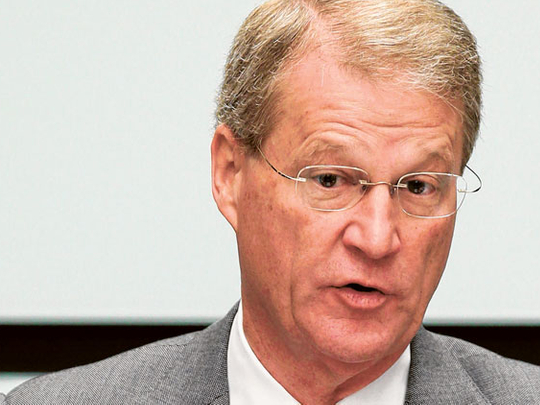
Moscow : The International Monetary Fund is worried that contagion from the Eurozone debt crisis could hit eastern Europe hard, and the region should take strong action to shield itself, a senior Fund official said yesterday.
"The number one priority would be to see these countries more resilient, more robust," the head of the IMF's European department, Antonio Borges, told a news briefing in Moscow.
Emerging economies like Russia have suffered accelerating capital flight and steep losses on financial markets since the global economic outlook soured in August and Europe's sovereign debt crisis took a turn for the worse.
Some capital flight has been attributed to a withdrawal of funds from the eastern European subsidiaries of western banks as they seek to manage their exposure to the sovereign debt of Greece, which is at risk of default.
"We're especially focused on financial spillovers because if there are further problems in the financial sector in western Europe that will certainly have repercussions in emerging Europe," said Borges.
Debt default
Russia does not borrow from the IMF. It received an IMF loan before defaulting on its domestic debts in 1998 and has gone on to reduce its sovereign debt to 10 per cent of gross domestic product and accumulate over $500 billion (Dh1.84 trillion) in reserves.
Borges made waves in Brussels last week when he said the IMF might buy Spanish and Italian sovereign bonds as part of crisis management efforts. He later clarified his remarks, saying the IMF could lend to governments but could not buy their bonds in the market.
"The IMF is not in a position to buy on the bond market. We will however do our best to restore confidence in the banks in Spain and Italy," Borges said.
He said the European Financial Stability Fund (EFSF), a bailout fund set up by the Eurozone member states, could boost confidence if properly deployed.
The EFSF "can have a very big impact", Borges said, adding: "The IMF will do everything in its power to achieve this as well, but the possibility of intervening on the market today is not in our mandate."
"The EFSF is now being increased — we think this is very appropriate and we don't think that there is much scope for a further increase, especially in the short term. The question is how these resources can be used effectively."












